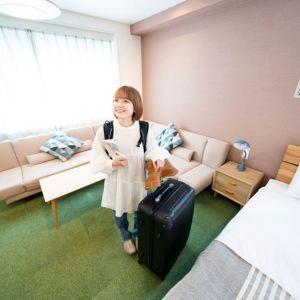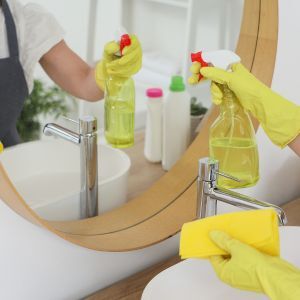What Your Hotel Guests Notice About Room Cleanliness (And What They Don’t)
In the hospitality business, perception is everything. Your guests won’t walk in with a checklist, but they’ll instantly form an opinion about your property based on how clean—and how fresh—it feels. Interestingly, what guests think is clean doesn’t always align with what actually is. In this article, we break down what hotel guests notice most about room cleanliness (and what they don’t), based on customer reviews, research, and frontline industry insights.
Why Cleanliness Is Critical to Guest Experience
According to multiple hospitality surveys, cleanliness ranks as the #1 factor influencing guest satisfaction. In fact, reviews mentioning cleanliness—good or bad—can make or break a hotel’s reputation.
A spotless room:
-
Enhances guest trust and comfort
-
Leads to better reviews and higher ratings
-
Reduces guest complaints and refund requests
But here's the catch: guests notice certain details more than others. So where should your cleaning team focus their attention?
What Hotel Guests Immediately Notice
1. The Smell of the Room
Before they see anything, they smell it. Musty, stale, or chemical-heavy odours raise red flags. A fresh, subtle fragrance suggests hygiene and professionalism.
For more on how to create that signature clean hotel scent, check out our article: The Secret to That Clean Hotel Smell – And How to Get It.
2. Bathroom Surfaces
Sinks, toilets, mirrors, and shower walls are closely inspected by guests—often unconsciously. Smudges, soap scum, or hair are instant turnoffs.
3. Bed Linen and Pillows
Guests assume sheets are fresh, so stains, wrinkles, or leftover hair can destroy that perception. Clean, crisp linen is a major trust builder.
4. Carpets and Floors
Vacuumed carpets and spotless hard floors give a sense of overall cleanliness. Dirty corners or sticky patches signal neglect.
5. Rubbish Bins and Liners
Overflowing or dirty bins (especially in bathrooms) are a major red flag. Empty, lined bins are a quick win for visual cleanliness.
6. Glass and Mirrors
Fingerprints or streaks on glass surfaces suggest poor attention to detail.
What Guests Often Don’t Notice (But Still Matter)
1. Under the Bed or Furniture
Unless they drop something, guests won’t often check here. But dust build-up can contribute to odours and allergies.
2. Backs of Doors and High Shelves
Out-of-sight areas are easy to miss, but still affect air quality and can be noticed in certain light or angles.
3. HVAC Vents and Filters
Guests don’t inspect filters, but they will feel the effects—like poor airflow or musty smells.
4. Shower Curtains or Liners
Unless visibly mouldy, these may be overlooked. But fresh liners boost hygiene levels.
5. Inside Drawers or Wardrobes
These areas are less used, but finding dust, hair or old items leaves a poor impression.
Focus Areas for Cleaning Teams
To align guest perception with real hygiene, focus on high-visibility areas and the hidden spots that influence air quality and freshness:
-
Use odour-neutralising cleaners, not just fragranced sprays
-
Refresh soft furnishings and high-contact points regularly
-
Implement a checklist for under-bed and high-reach zones
-
Train staff to inspect rooms from a guest’s point of view
How Insinc Products Helps Hotels Exceed Guest Expectations
At Insinc Products, we supply NZ hotels and motels with commercial-grade cleaning and hygiene products designed for performance and reliability. From bathroom cleaners to odour control solutions, we help ensure your rooms not only are clean—but feel clean to your guests.
Browse our Hotel Cleaning Solutions
FAQs
Q1: Do guests really notice the small details?
Yes—especially in high-touch areas like taps, mirrors, and linens. Small oversights can impact review scores.
Q2: What’s more important: smell or sight?
Both matter, but scent is processed faster by the brain. A fresh smell can influence a guest’s entire impression.
Q3: Should cleaning staff use checklists?
Absolutely. Checklists ensure consistency and help cover easy-to-miss spots.
Q4: How often should air filters and vents be cleaned?
At least every 3 months, or more frequently in high-humidity areas.
Summary: Cleanliness Is What Guests Talk About
What your guests see and smell defines how clean they think your rooms are. It’s not just about hygiene—it’s about creating trust and comfort. Focus on what matters most to them, and you’ll earn better reviews, fewer complaints, and more return business.
Insinc Products has the solutions to help you deliver visibly and invisibly clean results, every time.
Posted: Friday 26 September 2025


